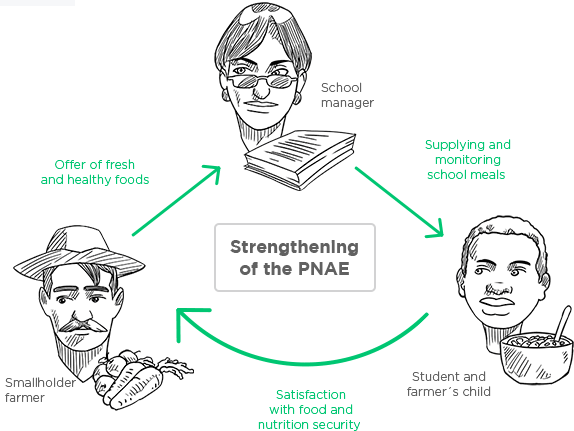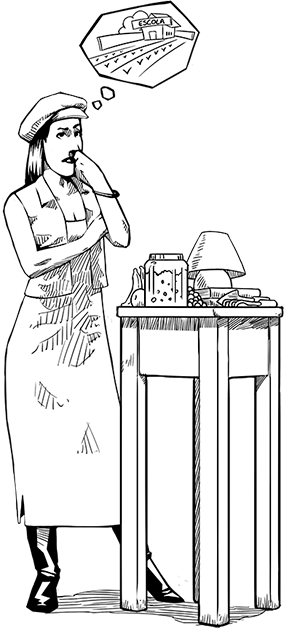Programme guidelines
Guidelines indicate the paths to be followed during the programme´s operation. In this way, the PNAE´s guidelines are:
- Universal service to students from the public education system;
- Community participation in civil society oversight;
- Support to sustainable development;
- Sustainable and proper feeding;
- Inclusion of Food and Nutrition Education for learning.

Interaction instructions:
Read the PNAE´s guidelines on the tables below and then try to organize the scrambled words in their respective definitions to know each one of the Programme´s guidelines.
It guides the use of varied and safe foods that respect culture, traditions and healthy eating habits, contributing to the growth and development of students and for a better school performance according to age groups and health status, including those who need specific attention.
It fosters the inclusion of food and nutrition education in the learning process over the school´s curriculum, covering themes of feeding and nutrition and the development of healthy life habits in the perspective of food and nutrition security.
It encourages the acquisition of diversified foodstuffs produced locally and preferably by smallholder farmers and smallholder entrepreneurs, prioritizing traditional indigenous communities and quilombo remnants.
It serves all students enrolled in basic education public schools.
It favours the operation´s monitoring and control by means of community participation in civil society oversight, through the School Feeding Councils (CAE).
It ensures students´ food and nutrition security with equal access, respecting biological age differences and health conditions of students who need specific attention, and those who are socially vulnerable.
FOOD FOR THOUGHT
Have you ever wondered how the creation of pedagogical projects would be possible based on the food served to students in your context? Can you imagine how much these types of activities will favour many ways of learning and different practices, such as taking care of the environment, citizenship, ethics, and, of course, the operation of the Programme itself?

